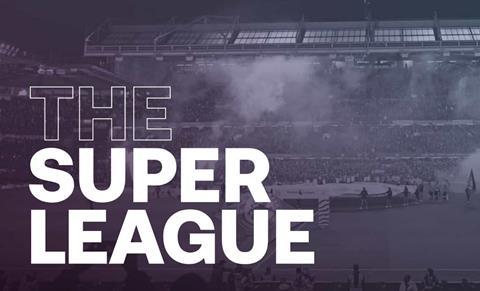While the short-lived European Super League looks to have fallen apart, the decreasing value of broadcast deals and continued pushes for reform from clubs leave the issue unresolved.

The European Super League appears to have been knocked back for the time being, with the majority of clubs pulling out and apologising for the aborted breakaway attempt.
However, this is unlikely to signal the end of the issue, both for those who pushed for it and those fighting against it. Despite messages to supporters from owners such as Liverpool’s John Henry and Manchester United’s Joel Glazer, protests continue against those personally involved in pushing for the breakaway.
On Thursday morning, Man Utd fans blocked the entrance to the club’s training ground, and Arsenal supporters’ groups are continuing to plan protests against the ownership of Stan Kroenke.
Broadcasters looked to position themselves alongside fans during the uproar, with the three Premier League broadcasters - Sky Sports, BT Sport, and Amazon Prime Video - eventually all making statements sympathising with supporters. DAZN also distanced itself after reports claiming that it had been intimately involved in the creation of the Super League.
However, those broadcasters, even Champions League and Europa League rights holder BT Sport - which likely had the most to lose and released a particularly scathing comment, stopped short of promising to not broadcast a possible European Super League.
This leaves the door open to further attempts at reform in the future, with the lack of a broadcast partner picked out as one of the reasons why the Super League was able to collapse so quickly. If the conspirators were to learn from the example of the Premier League’s creation in 1992, and its involvement of Sky from the beginning, the next effort may have a better chance of survival.
Indeed, while Premier League sides are currently licking their wounds, the messages from the continent are rather different.
In an environment where Serie A has just signed a media rights deal with DAZN that is significantly less lucrative than the last agreement, and Ligue 1 is still searching for next season’s broadcaster after Mediapro pulled out last year, both Real Madrid president Florentino Perez and Juventus chairman Andrea Agnelli have signalled that they remain convinced the project is desirable.
Agnellis admitted that while it is currently impossible without the involvement of Premier League sides, he still remains, “convinced of the beauty of that project, of the value that it would have developed to the pyramid, of the creation of the best competition in the world, but evidently no. I don’t think that project is now still up and running.”
Perez went further, telling radio show El Larguero, the Spanish station Cadena Sur: “We’re going to continue working. The project is on standby.” He added on the teams that have said they have left the league: “You cannot get out of the contract like this - they are binding contracts.”
In addition, even in apologising, Premier League clubs such as Tottenham hinted that the possible upheaval could still happen. Spurs stated: “We believe that we should never stand still and that the sport should constantly review competitions and governance to ensure the game we all love continues to evolve and excite fans around the world.”
Manchester United said: “We remain committed to working with others across the football community to come up with sustainable solutions to the long-term challenges facing the game,” and it was similar for other sides incolved.
Indeed, the apparent move from BT and Sky to avoid bidding wars could see Premier League TV rights lower in value when they next come up, and just today, reports of a ‘British Super League’ including Rangers and Celtic appeared.
As such, broadcasters will likely continue to see uncertainty across the football rights landscape going forward, and may become more interested in innovative solutions in the future.





No comments yet